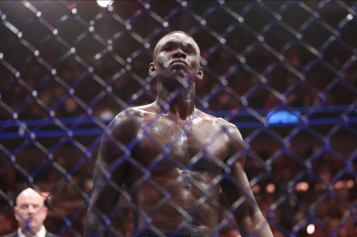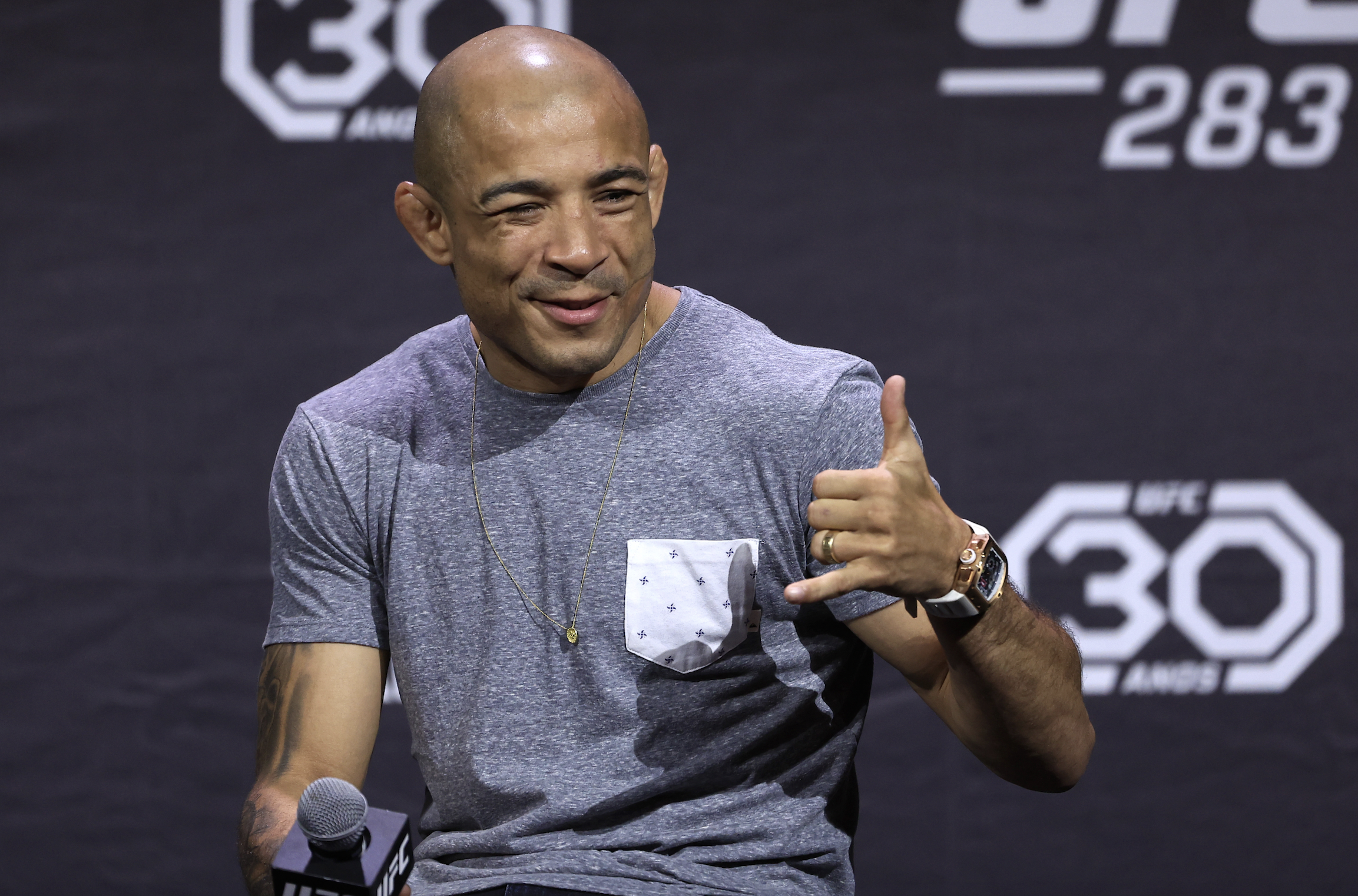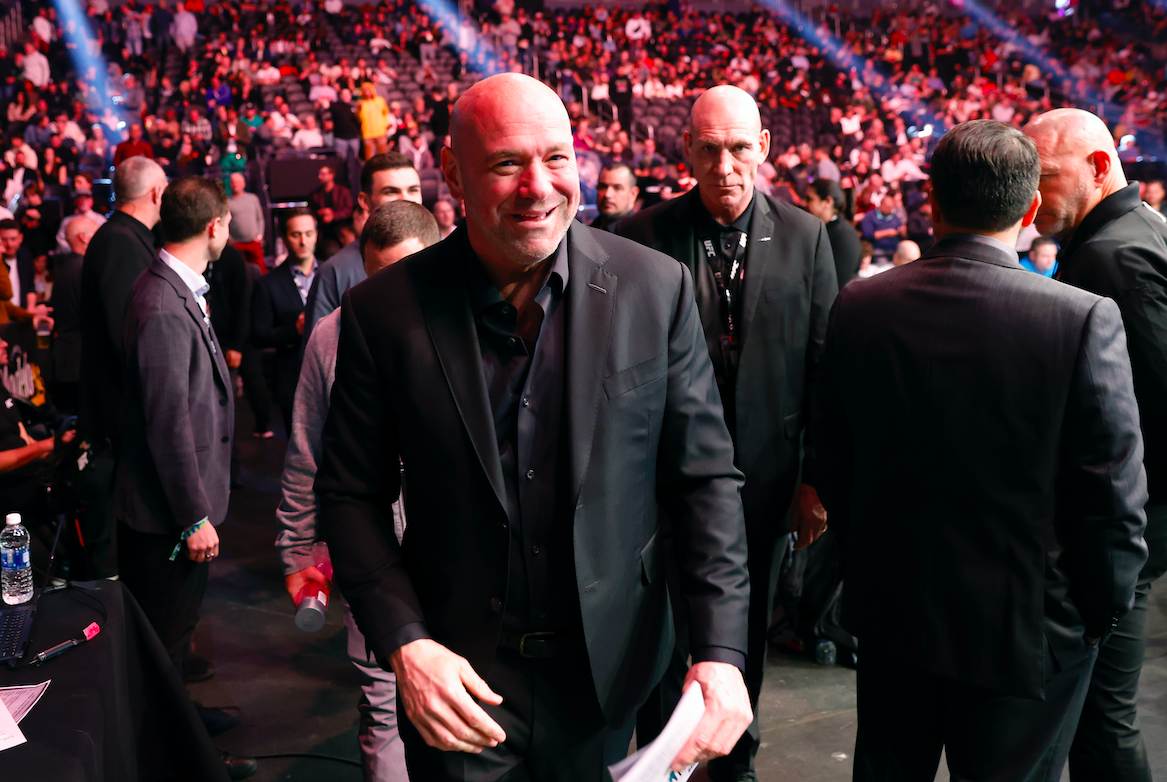This Monday, the UFC formally announced its sale to WME/IMG and partners.
What first started as rumor finally was confirmed with the revelation that UFC CEO and Chairman Lorenzo Fertitta would step down while UFC President Dana White will remain in his tenure.
With the global behemoth of WME/IMG stepping in as UFCs operating partner with a portfolio of more than 800 owned, operated and/or commercially represented events, WME | IMG looks well-suited to lead the future of MMA.
(Dana White, Photo Credit: SKM)
In the official press release, WME | IMG states they have a proven track record of building leading sports brands, will focus on accelerating the sports popularity and presence around the world. Silver Lake Partners and KKR will join WME | IMG as new strategic investors, along with MSD Capital, L.P. and MSD Partners, L.P. which will provide preferred equity financing.
The question must now be asked: will fighters begin to rally with one another for unionization? It is a delicate issue that had been shot down for years by Dana White himself and why wouldnt he?
After all, the $4.2 billion dollar price tag was built on the backs of value maximization with fighters receiving sub-par compensation in relation to athletes in other sports.
Since taking the reins in 2001 from Semaphore Entertainment, Lorenzo Fertitta and Dana White fought fervently to build a brand and respect for a burgeoning sport that started as spectacle.
(Lorenzo Fertitta, Photo Credit: Zuffa, LLC)
Utilizing strategic relationships and hiring based on Fertittas past experience as a Nevada State Athletic Commissioner and casino magnate, as well as Whites fighter managerial and fight business acumen, proved successful.
But as the UFC grew and stars were created, many were remiss at the payout disparities between main eventers and preliminaries on the show money and win-bonus structure.
All fighters are paid show money to actually show up to fight. If they win, they receive a win bonus, usually doubling what they were paid in show money. Fighters also receive incentives to fight hard in the form of Submission of the Night, Knockout of the Night, and Fight of the Night bonuses.
After weigh-ins, it was normal procedure for White to round up all the fighters and pitch them this incentive with fervor, dangling the green carrot to help motivate them to boost his ratings with a high-level performance. It was pure showmanship in a place like Las Vegas, where cash and flash are king.
(WME/IMG Co-CEO Ari Emanuel, Photo Credit: WME/IMG)
And it worked for a while, as fighters who craved spotlight as much as financial gains took the bait. They were hoping to generate enough wins to garner pay-per-view positioning, sponsorships, titles and a piece of the pay-per-view pie that usually headlining champions receive.
However, the athletes, who have a relatively low lifetime due to the physicality of the engagement, began to age and realized that they should have maximized their earning potential while still competing. Then the UFC began regulating sponsorship generation with impunity by charging a premium for sponsors to be featured on the athletes that they would, in turn, have to pay for logo placement on their cage walkout shirts and competition shorts.
Next came the removal of sponsorship procurement opportunities due to Reebok being named the title sponsor and fighters wearing a Reebok mandated uniform sans other sponsored logos. A pay scale based on the number of UFC Octagon appearances and champion denotation created a pay scale that many felt was unfair in relation to what they made pitching to the sponsor pool on their own.
Immediately, managers who generated their lifes blood from sponsorships, leaving the smaller purse amount to their mainly struggling part-time fighters with real side jobs, began to exit, leaving fighters less apt to remediation as playing the good guy and bad guy could get you dropped from the roster.
(Former UFC fighter Nate Quarry, Photo Credit: Nate Quarry)
However, former fighters Jon Fitch, Nate Quarry and action star Cung Le, who at the time of filing in 2014 was still under contract, filed a class-action antitrust lawsuit against the UFC and its former parent company, Zuffa.
Among other allegations, the antitrust suit alleges UFC has violated the Sherman Antitrust Act by illegally scheming to create a non-competitive marketplace, restricting the earning capabilities of fighters to a fraction of what would be available in a competitive market. The suit also alleges UFC coerces fighters to give up rights to their names and likeness in perpetuity.
(Martial arts action movie star and fighter Cung Le, Photo Credit: Zuffa, LLC)
Aside from the named plaintiffs Le, Fitch, and Quarry, “all persons who competed in one or more live professional UFC-promoted MMA bouts taking place or broadcast in the United States during the Class Period” will be able to join their names to the suit. The exception to that opportunity were foreign fighters who have solely fought in overseas events.
The rallying cry for these former UFC fighters has not gained the deafening momentum they probably thought it would from the fighter community. In fact, a whisper for fear of public support would be more accurate. The question remains, will other fighters begin to champion this sentiment now that the savvy diplomacy of Lorenzo Fertitta is gone and the polarizing and often combative personality of Dana White will have no real reigning in?
It is not likely that Ari Emanuel of WME will have any real power over White except to fire him if their relationship goes sour. White still retains a percentage of ownership of the new company either way, but it is obvious that the UFC is so much his baby he wants to continue to raise it.
But White public battles with his athletes are notorious, most recently when UFC Featherweight champion Conor McGregor nixed a press appearance to promote UFC 200 and was essentially wiped off the card and the tongues of the fans during that fight week.
(Conor McGregor, Photo Credit: Zuffa, LLC)
McGregor went on a social media tirade and began to hype a potential fight with Floyd Money Mayweather, relishing in his ability to gain attention while lambasting Whites public spanking and yanking him off the hyped up card.
There are currently 500 fighters under contract, and that fact along with television deals with Fox Sports, sponsorships with Reebok and a heavy pay-per-view rotation led to the astronomical valuation.
As the largest sale of a sports franchise in history, will the product themselves begin to champion themselves and fight a new owner for their rights, or will the status quo remain with fear as the factor to keep them all in line?
If individual competitors can put down beef and weight class division positioning and join together for commonality, the new greatest show on earth that never reveals pay-per-view numbers, will now enter a new age of true transparency and fair play.









